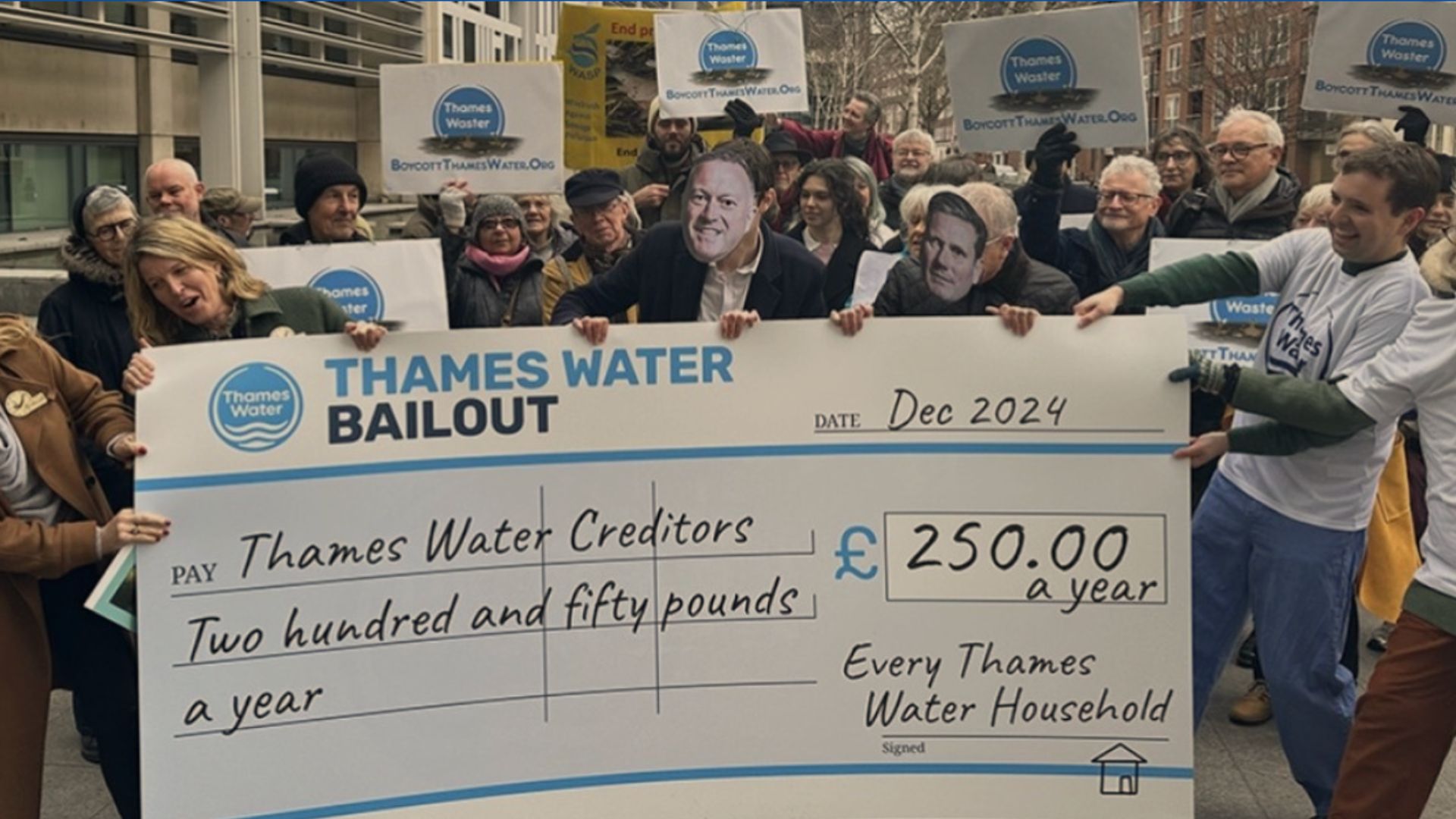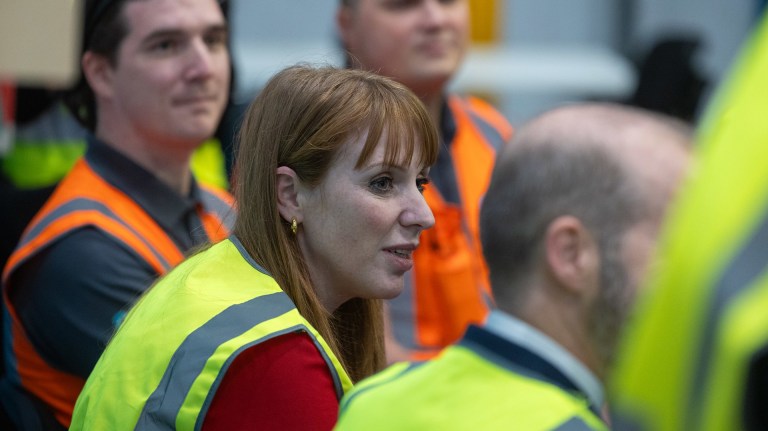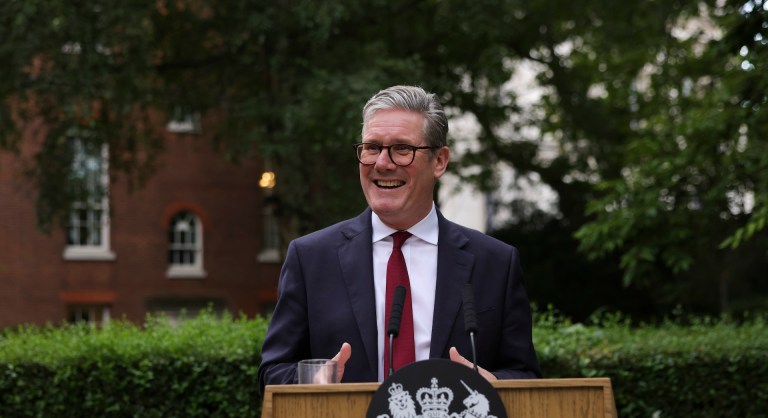Industry watchdog Ofwat is likely to reject the request: it is reportedly considering increases of 21% (£19 a year). A decision is due on Thursday (19 December).
Ofwat recently blocked Thames Water from using customer money to pay executive bonuses. The company gave executive bosses £770,000 in bonuses in 2023-24 – a decision defended by top executive Chris Weston.
“I completely understand that there are customers out there who struggle with their bills,” he said – but added that the firm needed to offer “competitive” salaries to attract talent. Weston himself was awarded a bonus of £195,000 for his first three months at the company.
Together with Windrush Against Sewage Pollution and the Henley Mermaids, We Own It have called on the government to bring Thames Water back into public ownership.
If the government took Thames Water into special administration – on the basis that it could no longer furnish its responsibilities to customers – campaigners argue that its debts could be written off.
The concept of a ‘debt haircut’ underlies this proposal. This means creditors agree to accept less than the full value of their loans to help the company restructure and survive.
This shifts the financial burden to creditors and shareholders, not taxpayers. But full debt write-offs are rare: it is unlikely the government would pursue this course of action.
All of this comes as the UK’s environment watchdog found that the previous Westminster government and regulators have broken the law by not punishing water companies that spill sewage.
Water companies are allowed to release sewage after heavy rains overwhelm their Victorian-era infrastructure – but in recent years, the number of spills during dry periods has surged.
Water companies released sewage 6,000 times into rivers and seas in 2022 when it wasn’t raining, the BBC found.
And last week, Thames Water revealed 359 so-called ‘category one to three’ pollution incidents in the six months to 30 September, an increase of 40% on the same period the previous year.
The total number of spills surged to 17,564 between January and September, compared to 12,428 a year previously.
The government’s environment department Defra, and the Environment Agency said that they are carefully “considering the allegations”.
“For too long, water companies have pumped record levels of sewage into our rivers, lakes and seas,” a Defra spokesperson said. “[The new government elected in July] has acted decisively to refresh outdated guidance to make extremely clear our expectations.”
If they accept the OEP’s finding, it could mean that water companies are required to invest more in infrastructure to prevent sewage spills.
Do you have a story to tell or opinions to share about this? Get in touch and tell us more. This Christmas, you can make a lasting change on a vendor’s life. Buy a magazine from your local vendor in the street every week. If you can’t reach them, buy a Vendor Support Kit.









